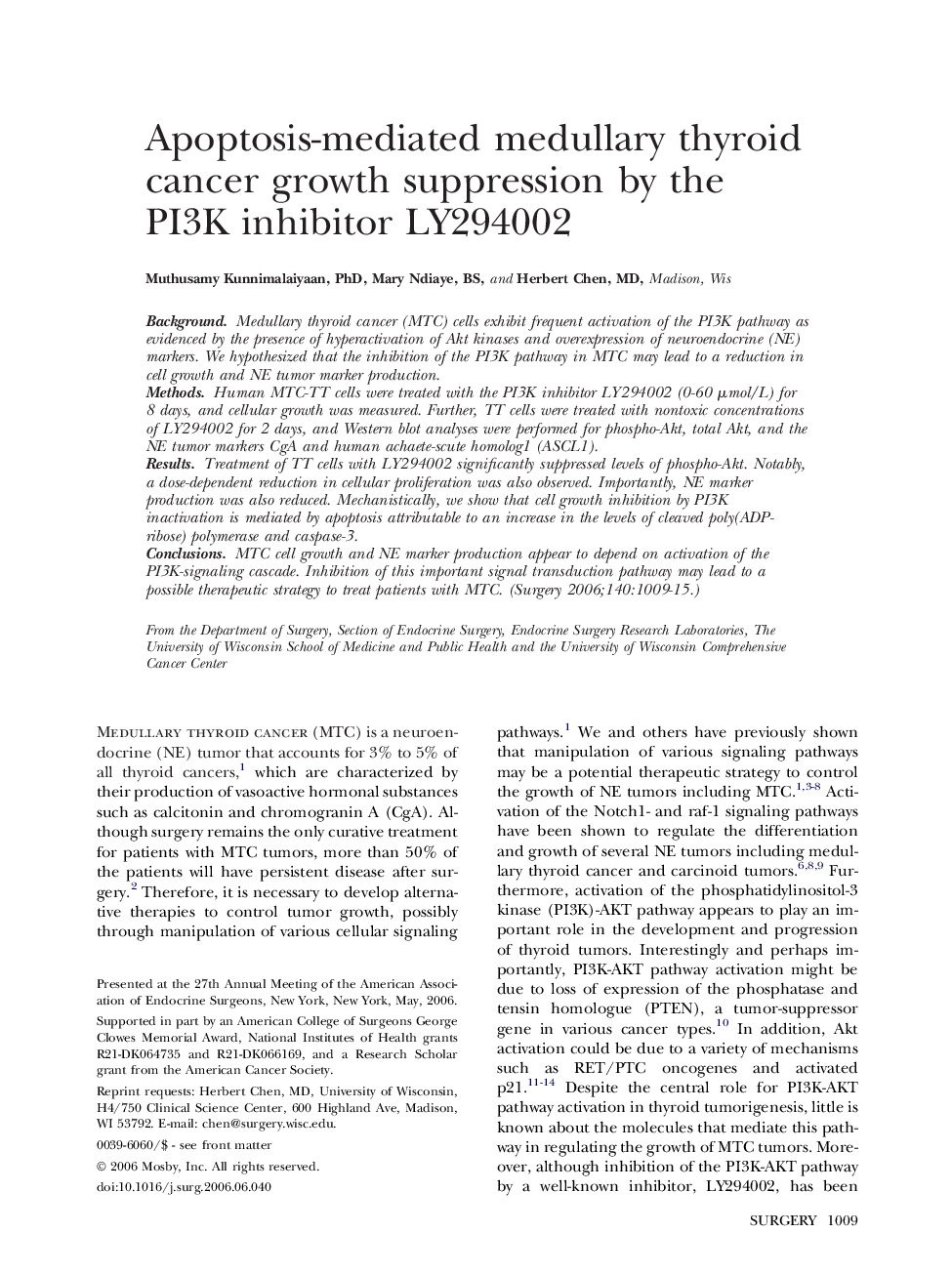| Article ID | Journal | Published Year | Pages | File Type |
|---|---|---|---|---|
| 4310468 | Surgery | 2006 | 7 Pages |
BackgroundMedullary thyroid cancer (MTC) cells exhibit frequent activation of the PI3K pathway as evidenced by the presence of hyperactivation of Akt kinases and overexpression of neuroendocrine (NE) markers. We hypothesized that the inhibition of the PI3K pathway in MTC may lead to a reduction in cell growth and NE tumor marker production.MethodsHuman MTC-TT cells were treated with the PI3K inhibitor LY294002 (0-60 μmol/L) for 8 days, and cellular growth was measured. Further, TT cells were treated with nontoxic concentrations of LY294002 for 2 days, and Western blot analyses were performed for phospho-Akt, total Akt, and the NE tumor markers CgA and human achaete-scute homolog1 (ASCL1).ResultsTreatment of TT cells with LY294002 significantly suppressed levels of phospho-Akt. Notably, a dose-dependent reduction in cellular proliferation was also observed. Importantly, NE marker production was also reduced. Mechanistically, we show that cell growth inhibition by PI3K inactivation is mediated by apoptosis attributable to an increase in the levels of cleaved poly(ADP-ribose) polymerase and caspase-3.ConclusionsMTC cell growth and NE marker production appear to depend on activation of the PI3K-signaling cascade. Inhibition of this important signal transduction pathway may lead to a possible therapeutic strategy to treat patients with MTC.
